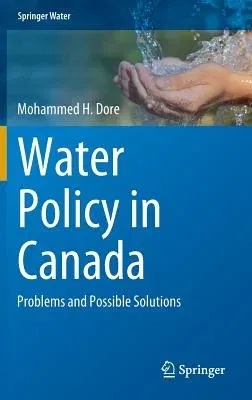Mohammed H Dore
(Author)Water Policy in Canada: Problems and Possible Solutions (2015)Hardcover - 2015, 25 March 2015

Qty
1
Turbo
Ships in 2 - 3 days
In Stock
Free Delivery
Cash on Delivery
15 Days
Free Returns
Secure Checkout

Part of Series
Springer Water
Print Length
327 pages
Language
English
Publisher
Springer
Date Published
25 Mar 2015
ISBN-10
3319158821
ISBN-13
9783319158822
Description
Product Details
Author:
Book Edition:
2015
Book Format:
Hardcover
Country of Origin:
NL
Date Published:
25 March 2015
Dimensions:
23.39 x
15.6 x
2.06 cm
Genre:
Environmental Studies
ISBN-10:
3319158821
ISBN-13:
9783319158822
Language:
English
Location:
Cham
Pages:
327
Publisher:
Series:
Weight:
662.24 gm